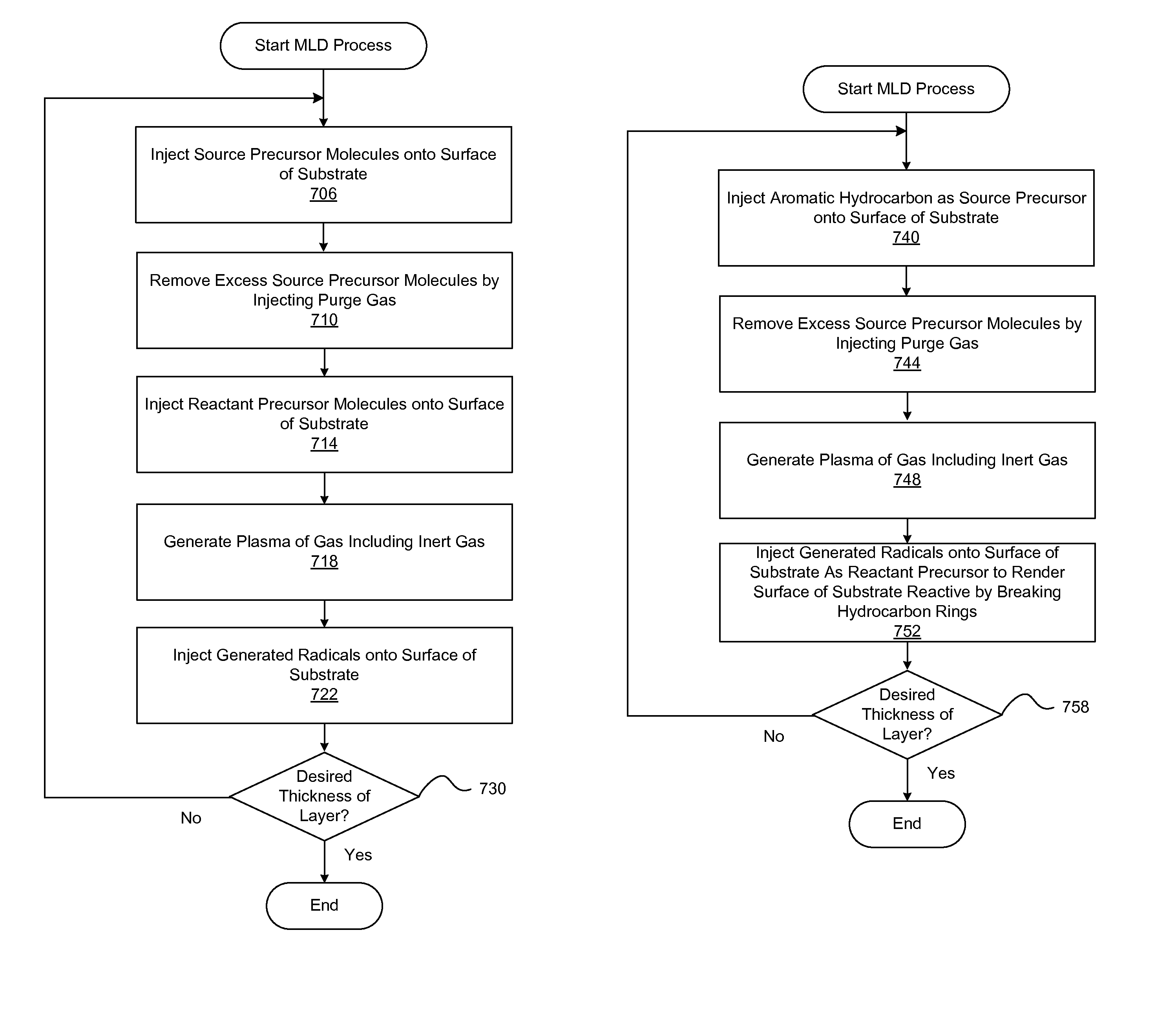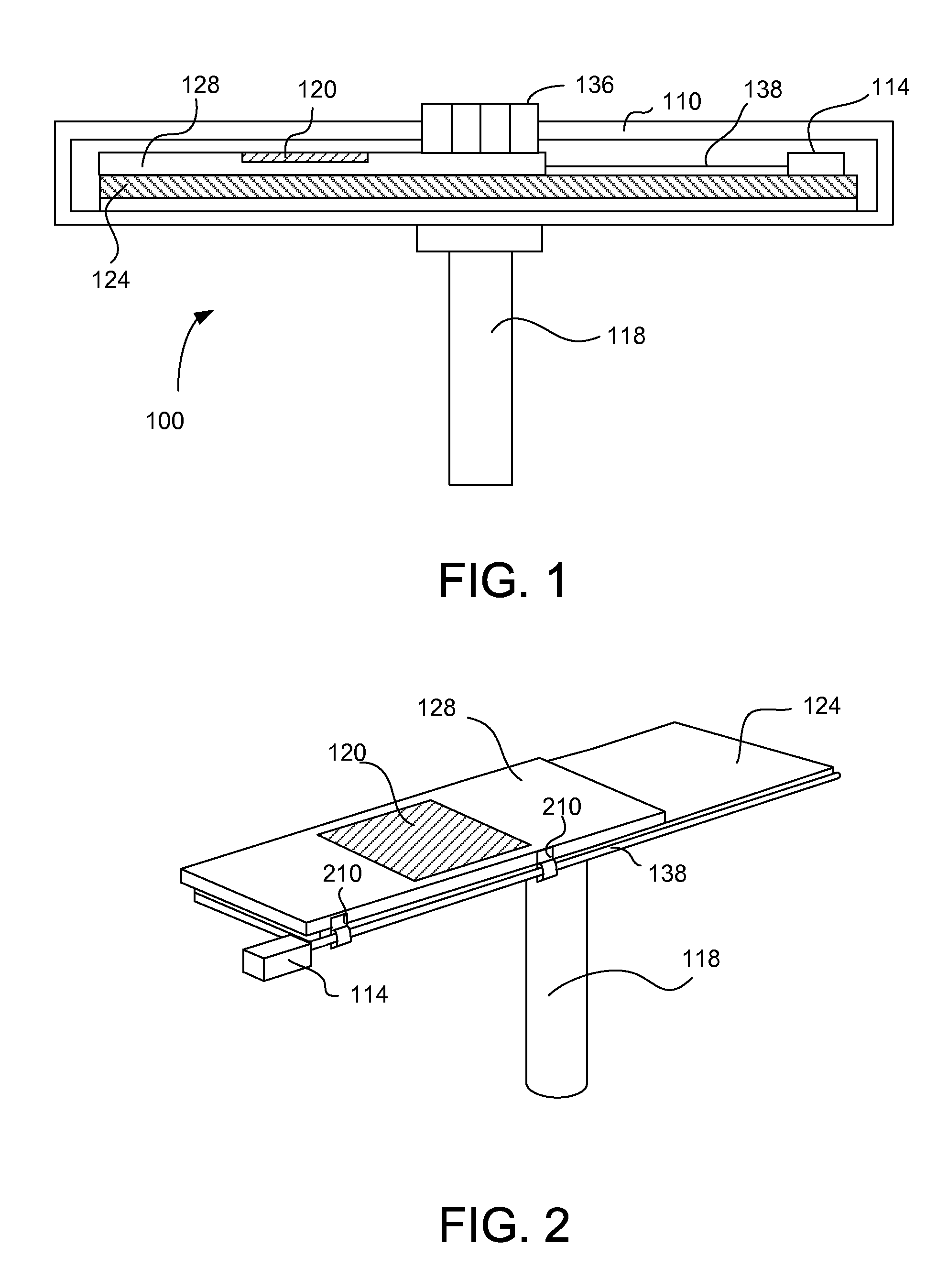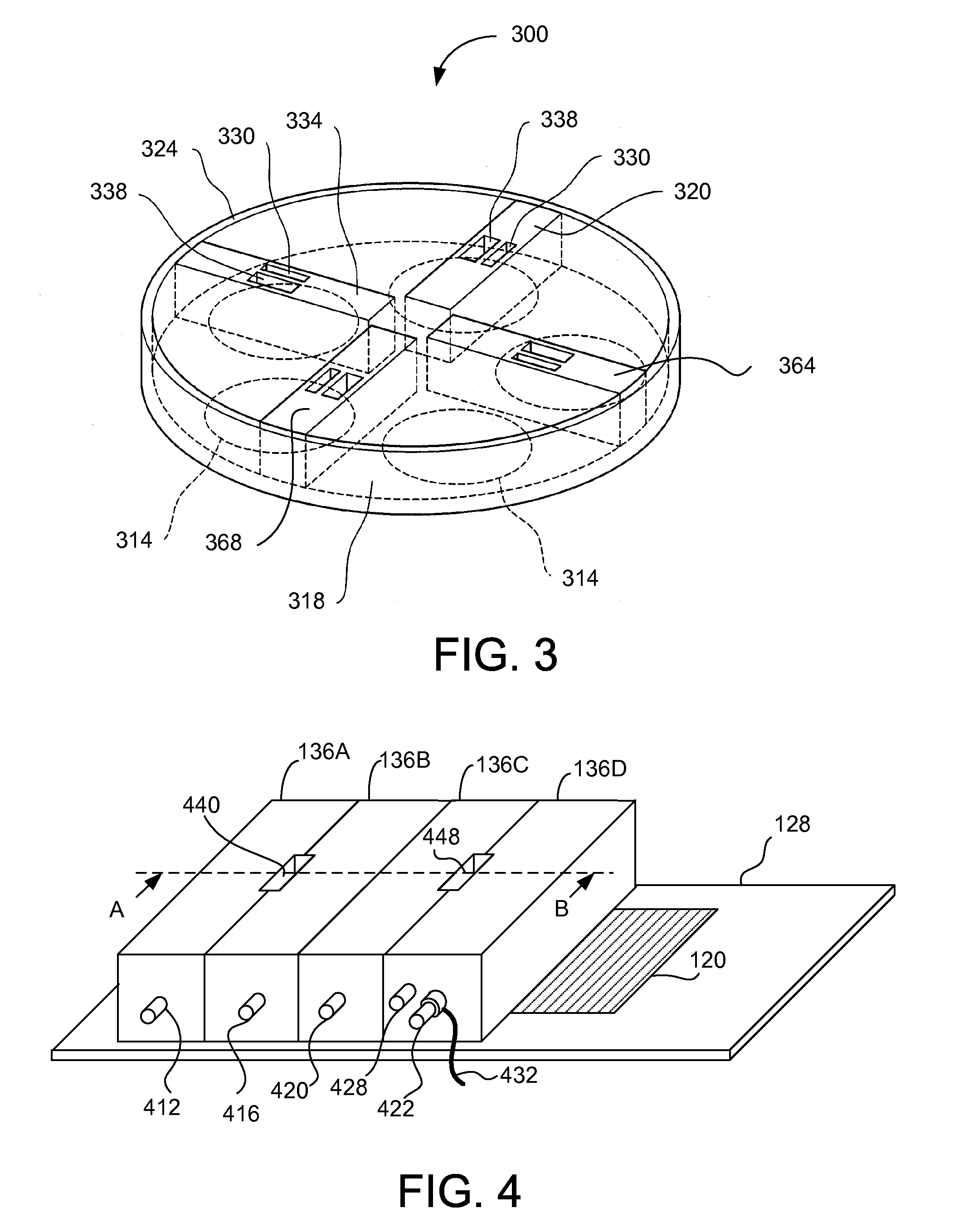Enhanced deposition of layer on substrate using radicals
a technology of radicals and substrates, applied in the direction of chemical vapor deposition coatings, coatings, plasma techniques, etc., can solve the problems of limiting the use of precursor materials, the deposition rate, and the limitations of each of these deposition processes, so as to facilitate the subsequent reaction with tma
- Summary
- Abstract
- Description
- Claims
- Application Information
AI Technical Summary
Benefits of technology
Problems solved by technology
Method used
Image
Examples
Embodiment Construction
[0047]Embodiments are described herein with reference to the accompanying drawings. Principles disclosed herein may, however, be embodied in many different forms and should not be construed as being limited to the embodiments set forth herein. In the description, details of well-known features and techniques may be omitted to avoid unnecessarily obscuring the features of the embodiments.
[0048]In the drawings, like reference numerals in the drawings denote like elements. The shape, size and regions, and the like, of the drawing may be exaggerated for clarity.
[0049]Embodiments relate to using radicals at different stages of deposition processes. The radicals may be generated by applying voltage across electrodes in a reactor remote from a substrate. The radicals are injected onto the substrate at different stages of molecular layer deposition (MLD), atomic layer deposition (ALD), and chemical vapor deposition (CVD) to improve characteristics of the deposited layer, enable depositing o...
PUM
| Property | Measurement | Unit |
|---|---|---|
| distance | aaaaa | aaaaa |
| bonding force | aaaaa | aaaaa |
| deposition rate | aaaaa | aaaaa |
Abstract
Description
Claims
Application Information
 Login to View More
Login to View More - R&D
- Intellectual Property
- Life Sciences
- Materials
- Tech Scout
- Unparalleled Data Quality
- Higher Quality Content
- 60% Fewer Hallucinations
Browse by: Latest US Patents, China's latest patents, Technical Efficacy Thesaurus, Application Domain, Technology Topic, Popular Technical Reports.
© 2025 PatSnap. All rights reserved.Legal|Privacy policy|Modern Slavery Act Transparency Statement|Sitemap|About US| Contact US: help@patsnap.com



